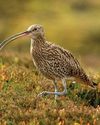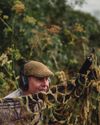
Once a much-derided (and frequently fraudulent) substitute for rock samphire in the eponymous Victorian pickle, marsh samphire gradually gained favour as a smart accompaniment to fish.
This all seems odd to me as, frankly, why one would wish to eat rock samphire in any form is a complete mystery. With a flavour of carrot and turpentine, it is horrible raw and even worse when pickled.
Marsh samphire, by contrast, has a mild asparagus flavour and is salty and wonderfully crisp. The fortunes of the two plants have reversed, with marsh samphire widely venerated and the likes of salmon, samphire and charred cucumber salad appearing on smart menus, while rock samphire is left to peaceful neglect.
There has long been a great confusion between these two plants, intended or not. An article in Tatler in 1957 maintained tradition by confusing the two so hopelessly that the reader was assured that marsh samphire grows in muddy estuaries (which it does) and also high up on cliffs (which it doesn’t), the latter domain being that of rock samphire.
The two plants are only distantly related as they are in different botanical orders. Marsh samphire is in the goosefoot family (along with spinach), while rock samphire is in the carrot family, hence the carroty flavour. There is also golden samphire in the daisy family, another plant of the seashore, but we have seen enough. Well, almost. One persistent misunderstanding about marsh samphire is that it is a seaweed. It is not a seaweed, not even a little bit.
Marsh samphire occurs all around the British Isles wherever there are shallow, estuarine conditions, typically salt marsh. It could be in mud or mud mixed with shingle and is sometimes found in brackish strips of land behind pebbly beach-mounds.
Denne historien er fra May 27, 2020-utgaven av Shooting Times & Country.
Start din 7-dagers gratis prøveperiode på Magzter GOLD for å få tilgang til tusenvis av utvalgte premiumhistorier og 9000+ magasiner og aviser.
Allerede abonnent ? Logg på
Denne historien er fra May 27, 2020-utgaven av Shooting Times & Country.
Start din 7-dagers gratis prøveperiode på Magzter GOLD for å få tilgang til tusenvis av utvalgte premiumhistorier og 9000+ magasiner og aviser.
Allerede abonnent? Logg på

United we stand
Following United Utilities' decision to end grouse shooting on its land, Lindsay Waddell asks what will happen if we ignore our vital moors

Serious matters
An old gamebook prompts a contemplation on punt-gunning

They're not always as easy as they seem
While coneys of the furry variety don't pose a problem for Blue Zulu, he's left frustrated once again by bolting bunnies of the clay sort

Debutant gundogs
There's lots to think about when it comes to making the decision about when to introduce your dog to shooting

When the going gets rough
Al Gabriel returns to the West London Shooting School to brush up on his rough shooting technique

The Field Guide To British Deer - BDS 60th Anniversary Edition
In this excerpt from the 60th anniversary edition of the BDS's Field Guide To British Deer, Charles Smith-Jones considers the noise they make

A step too far?
Simon Garnham wonders whether a new dog, a new gun and two different fields in need of protection might have been asking too much for one afternoon's work

Two bucks before breakfast
A journey from old South London to rural Hertfordshire to stalk muntjac suggests that the two aren't as far detached as they might seem

Stalking Diary
Stalkers can be a sentimental bunch, and they often carry a huge attachment to their hill

Gamekeeper
Alan Edwards believes unique, private experiences can help keepers become more competent and passionate custodians of the countryside